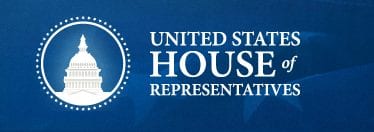 Federal Legislative Delegates
Federal Legislative Delegates
Use these links to find the contact information for your U.S. Congressional delegates in Washington DC. Members of both the United States Senate and the United States House of Representatives are linked here.
 Louisiana State Legislative Delegates
Louisiana State Legislative Delegates
Use this link to find the contact information for your Louisiana delegates. You must know your address to use this function.
Use this link to find the contact information for all of the Louisiana delegates in Baton Rouge, LA. Members of both the Louisiana Senate and the Louisiana House of Representatives are linked here.
 Legislative History and Documents
Legislative History and Documents
Section 320 of the Clean Water Act
Public Law No: 114-162 (05/20/2016) Reauthorizing the National Estuary Programs
The National Estuary Program: Congressional Establishment of a Non-Regulatory “Core Water” Program
Congress established the National Estuary Program in 1987 identify, protect and restore estuaries of national significance. In recognition of the track record of its unique voluntary, collaborative, and non-regulatory management conferences, Congress has periodically updated and reauthorized the National Estuary Program to strengthen its role and ensure its continued commitment to restoring and protecting “estuaries of national significance.”
Establishment of the National Estuary Program in 1987
In 1987, the U.S. Congress amended the Clean Water Act by establishing the National Estuary Program (NEP) via Section 320 of the 1987 Clean Water Act (CWA) to identify, protect and restore “estuaries of national significance.” Section 320 enabled states, upon federal approval, to establish a management conference to develop a comprehensive management plan for estuaries that were deemed to be threatened by pollution, development, or overuse, through collaborative voluntary efforts of federal, state, local, non-profit, and private interests.
Each NEP plan, also known as a Comprehensive Conservation and Management Plan or CCMP, was designed to address water quality problems in, and promote the ecological integrity of, estuaries. Through Section 320, the NEP’s Management Conference would coordinate and provide funding for long-term planning to address the complex factors that contribute to the degradation of estuaries. The Management Conference would ensure that the CCMP is uniquely tailored to local environmental conditions, is based on local input, and supports local priorities.
Expanding the NEP Role: the 2000 Reauthorization
In the first 13 years of the NEP, 18 management conferences had been established and completed CCMPs for different estuaries around the country; another 10 NEPs were in development but had not been federally approved. With an already established track-record of success and growing demand, Congress reauthorized and updated the NEP in the Estuaries and Clean Waters Act of 2000. This reauthorization expanded the role of the Management Conference to develop and implement CCMPs.
2016 Reauthorization
Enacted in 2016 with bi-partisan support, Public Law 114-162 authorizes $26 million per year to support the NEP from 2016 through 2020. The new law guarantees that not less than 80 percent of each year’s appropriation must be used for the work of the 28 individual programs around the nation, in local communities and on-the-ground projects from Tampa Bay to Puget Sound. EPA’s administrative expenses are not to exceed 5 percent of the total amount appropriated and not less than 15 percent must be used for grants to address new challenges facing our estuaries, including sea grass loss that impact commercial fisheries and harmful algae blooms that limit recreational use of our waterways. The authorized funding and formula is consistent with base funding provided to the NEPs since 2008. The engrossed (complete) version of the 2016 Reauthorization is HERE.
2017 Congressional Estuary Caucus
Congressional support has always been essential for the NEPs to undertake their unique work. Now, more than twenty-seven House Members have joined with U.S. Representatives Bill Posey (R-FL), Suzanne Bonamici (D-OR), Frank LoBiondo (R-NJ) and Rick Larsen (D- WA) in forming a new Congressional Estuary Caucus. The new Caucus will provide an important vehicle to engage Members and their staff about the importance of estuaries to our environment, economy, and quality of life. The caucus had a kickoff briefing on March 30, 2017, and will hold a variety of events throughout the 115th Congress.




